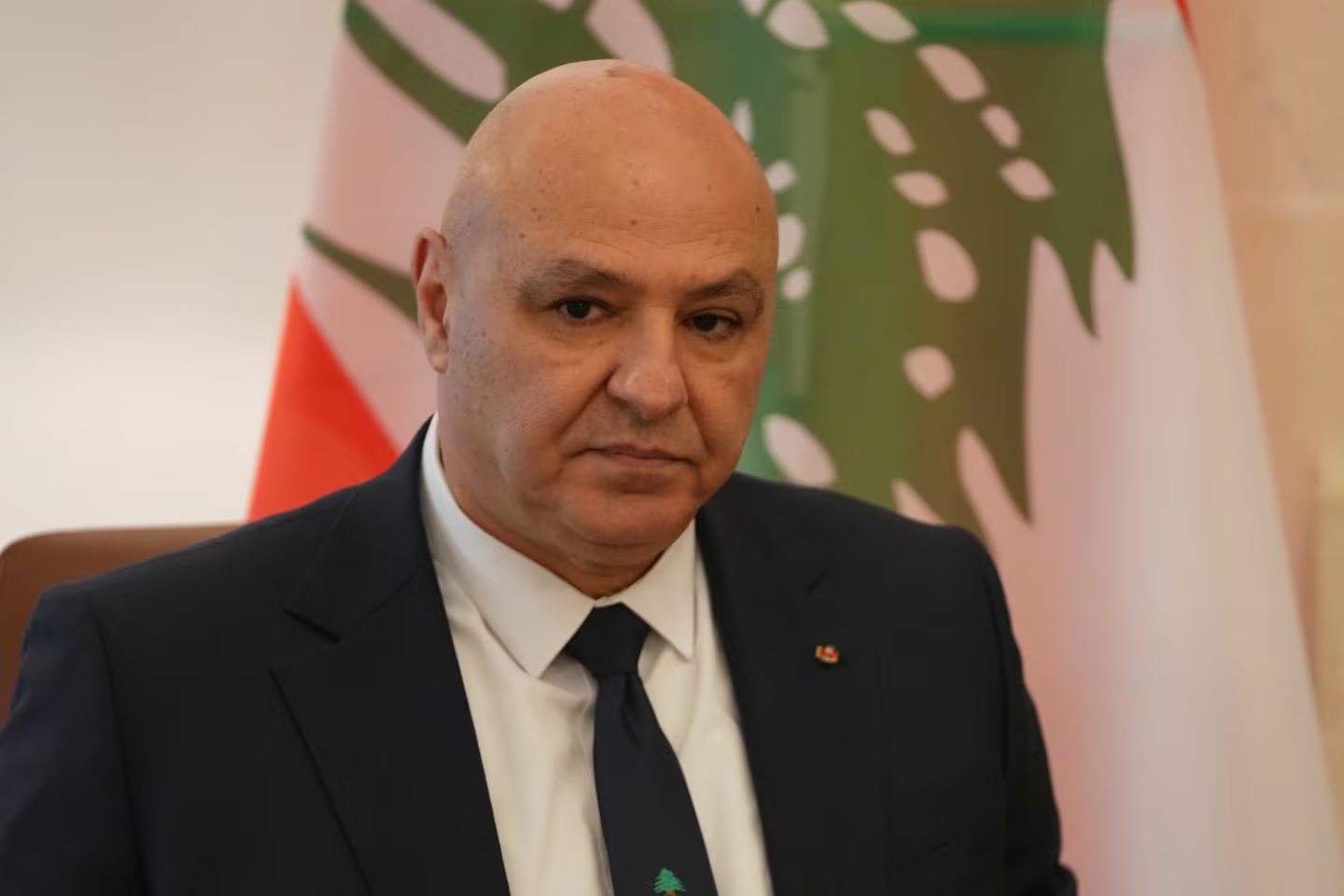Lebanese President Joseph Aoun has renewed his call for Hezbollah to surrender its weapons to the national army, intensifying a long-standing debate about the group’s role and influence within Lebanon.
The call comes amid increasing pressure from the United States and continued Israeli airstrikes, despite a ceasefire agreement.
Speaking during a televised address from the Defense Ministry on Thursday, Aoun emphasized the need for the Lebanese state to assert full control over its territory and security.
“We are demanding the extension of state authority across all Lebanese land, and the disarmament of all non-state actors, including Hezbollah, with their weapons handed over to the Lebanese army,” he said.
The president urged all political factions to seize what he described as a “historic opportunity” to reinforce national sovereignty by placing all arms under state control.
Doing so, he argued, would restore international trust in Lebanon’s stability and governance.
Aoun’s remarks followed firm resistance from Hezbollah.
Just a day earlier, the group’s deputy leader, Naim Qassem, had rejected any discussion of disarmament, framing such demands as aligned with Israel’s interests.
“Those who call for Hezbollah to give up its weapons, whether locally or abroad, are only serving the Israeli agenda,” Qassem stated.
Hezbollah leaders argue that their weapons are essential for defending Lebanese sovereignty until Israel ends its occupation of disputed territories and halts military strikes.
They have indicated that disarmament talks are off the table until these conditions are met.
Addressing Hezbollah’s base directly in his speech, Aoun acknowledged the group as “an essential pillar” of Lebanese society.
He sought to frame the issue of disarmament not as an attack on the group but as part of a broader vision for national unity, border protection, and state-building.
The recent conflict between Hezbollah and Israel, which erupted on October 8, 2023, saw the Lebanese group launch attacks in solidarity with Hamas during Israel’s assault on Gaza.
Although a ceasefire was reached in November, Israeli airstrikes on Lebanon have continued.
Israel has maintained that it will not fully cease hostilities until Hezbollah is disarmed.
The ceasefire, rooted in a longstanding United Nations Security Council resolution, stipulates that only the Lebanese military and UN peacekeepers are authorized to carry weapons in southern Lebanon.
The resolution also requires non-state actors, including Hezbollah, to disarm.
This is a directive that has remained unfulfilled for years due to Hezbollah’s superior firepower and deep political influence.
Under the truce terms, Hezbollah was expected to pull its fighters north of the Litani River, roughly 30 kilometers from the Israeli border.
Israel, in turn, was to withdraw from Lebanese territory.
However, Israeli forces remain in several border zones, which it deems strategically vital.
In his Thursday speech, Aoun also demanded the full withdrawal of Israeli troops, the release of Lebanese detainees held in Israel, and an immediate end to Israeli hostilities.
“The choice before us is stark: either collapse or stability,” he warned.
The Lebanese government, under pressure from Washington, has proposed revisions to a U.S.-backed plan concerning Hezbollah’s disarmament.
According to Aoun, these modifications will be debated at a cabinet meeting scheduled for next week, where a timeline for implementation will be considered.
Lebanon’s proposal reportedly includes key conditions:
a comprehensive halt to Israeli airstrikes and targeted killings in Lebanon, the release of Lebanese prisoners, and the withdrawal of all Israeli troops from the south.
In exchange, Beirut has offered to disarm all non-state groups, including Hezbollah, and transfer those weapons to the national army.
Additionally, Aoun called on the international community to provide substantial financial support.
The plan outlines the need for $1 billion annually over the next decade to bolster the Lebanese military and ensure the successful transition of security responsibilities.
He also proposed hosting an international donor conference in the fall to fund reconstruction efforts in areas devastated by the recent war with Israel.
In closing, Aoun framed the initiative as a step toward reclaiming national unity and sovereignty.
He argued that only a fully empowered Lebanese state can ensure long-term peace and stability in the region.







